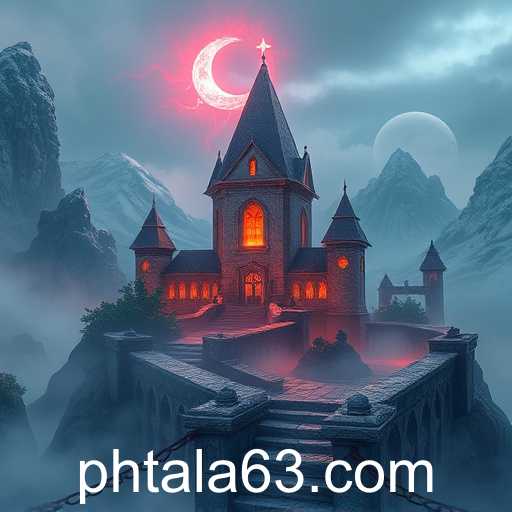Role-playing games (RPGs) have long been a staple of the gaming industry, capturing the imaginations of players with their rich narratives and immersive gameplay. In this ever-expanding universe, RPGs offer an unparalleled level of freedom and creativity, allowing players to step into the shoes of their characters, explore fantastical worlds, and engage in epic quests. Central to this captivating genre is the concept of 'Phtala,' a keyword that resonates with gamers and represents the very essence of RPG magic.
The term 'Phtala' has emerged as a symbolic element in the RPG community, often associated with themes of mystical lore and enchanting adventures. Its origins, shrouded in mystery, have become a topic of intrigue for many gaming enthusiasts. Some suggest that 'Phtala' is a mythical land full of wonders and untold secrets, while others believe it refers to a powerful artifact or spell within a game's universe. Regardless of its definition, 'Phtala' has become synonymous with the exploration and imaginative spirit that RPGs are celebrated for.
The allure of RPGs lies in their ability to transport players to vividly constructed realities, where choices matter, and each decision can dictate the course of the story. Games like 'The Elder Scrolls,' 'The Witcher,' and 'Final Fantasy' have successfully harnessed the power of storytelling, giving weight to the player's actions and character development. In these narratives, gaming becomes more than mere entertainment; it transforms into an art form where players can live different lives, experience diverse cultures, and embark on adventures without limitations.
RPGs excel at blending intricate plotlines with strategic combat systems and character customization. Players can tailor their experience by choosing from a diverse array of classes, abilities, and equipment, each offering unique strengths and weaknesses. Customization fostered by this variation contributes to an engaging experience that encourages replayability and personal expression.
One of the most compelling aspects of role-playing games is their capacity to create dynamic communities and shared experiences among players. Whether through online multiplayer adventures or vibrant fan forums, RPGs often lead to strong bonds formed through shared challenges and triumphs. The keyword 'Phtala' frequently surfaces in these discussions, serving as a unifying thread that ties enthusiasts together in their shared passion for the genre.
As technology continues to advance, the boundaries of RPGs are continually expanding, with developers pushing the envelope on what these games can achieve. Virtual reality (VR) and augmented reality (AR) technologies promise even greater levels of immersion, making the fantasy worlds within RPGs even more tangible and impactful. In this evolution, the influence of 'Phtala' persists, ever adapts, inspiring new generations of game creators and players alike.
The fascination with role-playing games and the symbolism of 'Phtala' demonstrate the powerful connection between narrative, character, and player experience. As the gaming landscape continues to evolve, one thing remains certain: 'Phtala' encapsulates the heart and soul of the RPG genre, offering endless possibilities for storytelling and adventure. The journey into the unknown continues, with 'Phtala' serving as both a guide and inspiration for future explorations in the realm of imagination.








